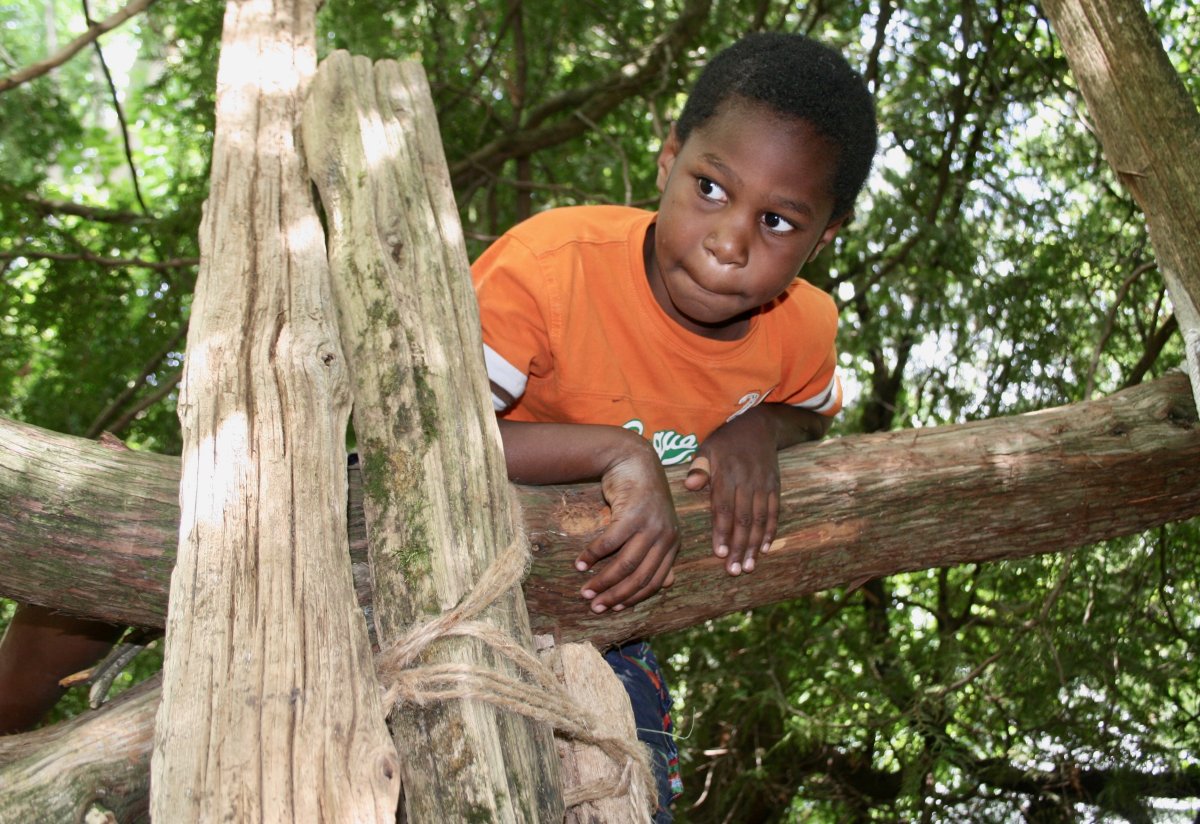When ClearWater Farm’s 112-year-old barn burned down in October 2016, the Ontario town of Georgina was devastated. It was one of the oldest buildings in town, situated on the shores of Lake Simcoe in the picturesque old neighbourhood of Willow Beach. A little under two years later, though, the citizens are raising a new barn from the ashes of the old one.

Through the rebirth of this barn, the Ontario Water Centre, an educational charity, and the wider community hope to create a place where children can explore ways to become more in touch with nature and lead eco-friendly lives.
It’s a type of child-rearing that experts say is critical for the future wellbeing of the planet. Giving children opportunities to connect with and appreciate nature is an essential first step in inspiring them to protect the environment.
The rebuilding and reimagining of a century-old barn for this purpose was led by Annabel Slaight, co founder of the children’s OWL magazines, books and TV, the Ladies of the Lake and founding chair of the Ontario Water Centre. But how the space would be rebuilt originated with a younger group of people.
“Kids have more imagination by in large than adults — more freedom to dream,” said Slaight, whose illustrious career led to her being named to the Order of Canada in December 2017.

Get breaking National news
“When you are creating a place for kids, of course you give them a voice. We’re also trying to give all kids who come here the opportunity to live a little closer to their food and to nature.”
“What we’re seeing is that the closer the kids get to nature, the more they’ll care about it, the more they’ll love it, the more they’ll want to protect it and the more they’ll grow up as wonderful custodians of the planet who feel a part of nature.”
Slaight’s vision is backed by a report written by Stan Kozak, an independent education consultant, an Ontario pioneer of thinking about experiential learning and a contributor to the new Curriculum for Environmental Education for the Province of Ontario. In that study, he advocated for changing teaching practices from traditional teaching methods to new concepts like integrated and place-based learning.
Environmental education centres like ClearWater Farm have a special role to play in developing future generations of children and youth, according to the report.
“As students get older, their horizons expand and this may warrant travel farther afield to sites such as provincial and national parks, regional environmental learning centres, hiking trails or different urban and rural experiences,” wrote Kozak.
“Regional sites give teachers access to specialized staff, facilities and equipment relevant to the learning experience.”
And for the children in Georgina and other young visitors to the farm, place-based and integrated learning there will help them become more environmentally aware citizens.
Where education once focused on creating a good employee, Kozak’s shift in how children are taught is meant to unlock their natural curiosity and create a sense of responsibility to their community.
Kozak’s report also focused heavily on place-based learning, meaning getting students to learn, problem solve and work together in groups outside of the classroom setting.
Adults are often most impacted by their experiences as children, which makes providing children with new experiences outside the classroom all the more important.
“The world beyond the classroom provides a more inclusive learning environment for all kinds of learners,” the report noted.
In this way, it’s easier to get kids connected to nature in a country as vast as Canada. Even in most urban areas, nature is never too far away.
“People need to discover the benefits to be derived if we consider ourselves part of the environment,” said Slaight. “It’s a much more like First Nations thinking.”
The Ontario Water Centre is currently raising the $1.9 million it needs to rebuild the barn. The organization has already raised enough to get the project started, and is relying on a ton of local support. From local businesses and groups donating meals for volunteer timber framers to Dufferin Construction providing the concrete for the barn’s foundations, the farm is arranging numerous partnerships to help complete the build. ClearWater Farm is also asking for donations from the public to help complete the barn and help rise a generation of children that are in touch with the land and environmentally aware citizens.



